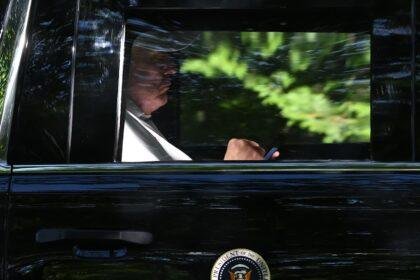Mikie Sherrill Vows Legal Action Against Trump Over Potential National Guard Deployment in New Jersey
In a bold statement during a recent town hall meeting, New Jersey gubernatorial candidate Mikie Sherrill expressed her strong opposition to any potential deployment of National Guard troops by President Donald Trump in the Garden State. Sherrill, who currently serves as the representative for New Jersey’s 11th Congressional District, emphasized her commitment to legal action should such a scenario arise.
Context of the Statement
Sherrill’s remarks came during a live broadcast on Univision 41 Nueva York, where she engaged with an audience that included individuals who had fled oppressive regimes, such as that of Nicolás Maduro in Venezuela. One audience member specifically inquired about her stance on the deployment of federal troops to New Jersey, a question that has gained relevance amid ongoing national discussions about law enforcement and military involvement in civilian matters.
The former Navy veteran and federal prosecutor articulated her belief that American troops should not be deployed on domestic streets except in extreme circumstances, such as insurrections or national crises. “Troops are not trained for policing missions,” she stated, underscoring the distinction between military and law enforcement roles.
Legal Implications and Historical Context
Sherrill’s commitment to legal action reflects a broader trend among state leaders who have challenged federal troop deployments. For instance, Illinois Governor J.B. Pritzker has also taken legal steps to prevent the Trump administration from sending National Guard troops to Chicago, citing concerns over legality and the potential for exacerbating tensions in communities already facing challenges.
Historically, the deployment of federal troops in domestic situations has been contentious. The Insurrection Act of 1807 allows the president to deploy military forces to suppress civil disorder, but its use has often sparked debate over states’ rights and the appropriate role of the military in civilian affairs. The deployment of troops during the civil rights movement and more recently in response to protests against police brutality has raised questions about the balance between maintaining order and respecting civil liberties.
Sherrill’s Political Landscape
Mikie Sherrill is running for governor against Republican candidate Jack Ciattarelli, aiming to succeed term-limited Democratic Governor Phil Murphy. Her stance on troop deployment is part of a broader campaign strategy that seeks to position her as a defender of civil rights and local governance. By pledging to take legal action against federal overreach, Sherrill aims to resonate with voters who prioritize state autonomy and community safety.
In recent months, President Trump has threatened to send federal troops to various cities, including Baltimore and Los Angeles, which he has labeled as crime-ridden. This approach has drawn criticism from multiple quarters, with opponents arguing that such actions could further inflame tensions rather than resolve underlying issues.
National Response to Federal Troop Deployments
The Trump administration has defended its troop deployments as necessary measures to combat rising crime rates and restore order. However, critics argue that these actions represent an overreach of federal power and could lead to increased violence and unrest. A federal judge recently ruled that the administration “willfully” violated federal law by deploying National Guard troops to Los Angeles earlier this year, a decision that underscores the legal complexities surrounding such actions.
The legal challenges to troop deployments are not isolated to New Jersey or Illinois. Cities across the nation have expressed concerns about the implications of federal intervention in local law enforcement. The ongoing debate raises critical questions about the role of the federal government in addressing crime and maintaining public safety.
Conclusion
Mikie Sherrill’s vow to sue the Trump administration over potential National Guard deployments in New Jersey highlights a significant intersection of state and federal authority. As the political landscape continues to evolve, her stance may resonate with voters who are wary of federal overreach and committed to preserving local governance. The outcome of this legal battle could set important precedents for the future of state-federal relations in the United States, particularly in the context of law enforcement and civil rights.








![[Al Jazeera]](https://www.globalnewzlive.com/wp-content/uploads/2025/09/Magnitude-78-quake-shakes-Russias-Far-East-region-prompts-tsunami-420x280.jpg)


